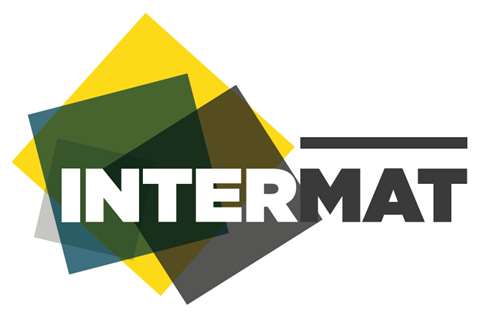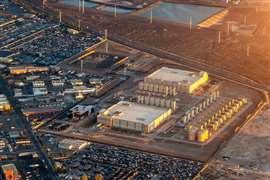Intermat predicts ‘mammoth’ infrastructure spend
13 December 2017

Europe is to spend €925 billion on key infrastructure projects up to 2050, research by the Intermat trade exhibition has found.
In addition, it predicted that infrastructure projects across a range of sectors in the EMEA (Europe, Middle East & Africa) zone would total a mammoth €1,600 billion for the next 30 to 40 years.
Intermat has unveiled its first Construction Industry Observatory, a report produced in association with Business France, the French government’s agency for export support and inward-investment promotion.
The report is designed to facilitate stronger bonds with market players. It provides construction-equipment manufacturers with strategic data on 12 countries in the EMEA zone, handpicked for their planned investment levels in infrastructure, public works and buildings.
Isabelle Alfano, exhibition director, said, “The Europe, Middle East & Africa zone that we cover holds a wealth of opportunities for companies in the sector. With the Intermat Observatory, we are offering all our partners an up-to-date working tool to support them in their development plans in high-potential markets.”
The report analyses each country’s domestic investment plans, both ongoing and for the period from 2025 to 2030.
The Observatory is divided into sectors – airports, buildings, railways, mining and quarries, ports, roads, as well as transport. It offers an overview of the major projects, the cross-border flows of construction equipment – imports and exports – and the foreign corporate names established in each country.
It said that infrastructure projects across a range of sectors and in the three continents of the EMEA zone would total €1,600 billion for the next 30 to 40 years.
The six European countries studied in the report — Belgium, France, Germany, Italy, The Netherlands and the UK — have slated €925 billion of projects, running up to 2030 for some, and 2050 for others. Germany tops the list with €287 billion up to 2030, followed by Italy with €223 billion) and the UK with €167 billion.
France is in fourth place with €139 billion, while €63 billion is earmarked for spending in The Netherlands, and €42 billion in Belgium.
The Grand Paris and the Grand Paris Express development plans were found to be the headline projects for the next 15 years in Europe, with €67 billion of investment in the pipeline. The sector offering the highest development potential for industry players is roads, followed by railways and buildings.

Africa
The potential for business was also said to be considerable in Africa, where €307 billion of investment is planned between now and 2040.
The four African countries studied include two in the Maghreb region – Morocco and Algeria – and two in sub-Saharan Africa – Ivory Coast and Kenya. They account for €307.2 billion of investment between now and 2040.
Algeria, with €183.7 billion, and Morocco, with €87.8 billion, feature the biggest investment plans to 2030. The sectors offering the highest development potential for construction firms are road and rail, followed by buildings and ports.
Among the region’s most noteworthy projects, the Intermat Construction Industry Observatory highlighted the Algerian construction of 1.6 million dwellings, which is expected between now and 2019, costing €20 billion, together with the construction of the fourth southern bypass around the capital, Algiers.
In Morocco – and due to extend across North Africa – the construction of a high-speed railway line is to start. It will run for over 2,000km from Morocco in the west to Tunisia in the east, and across Algeria.
In West Africa, Ivory Coast is planning to develop the port of San Pedro, at a cost of €1.3 billion, while, in East Africa, Kenya is launching its Standard Gauge Railway Project, worth €7.35 billion, the country’s most substantial infrastructure project since it gained independence from Britain.
Middle East
The two Middle Eastern countries featured in the report, the United Arab Emirates (UAE) and Qatar, plan to invest a total of €239.3 billion between now and 2033. Qatar’s investment plans worth €137.2 billion exceed the UAE’s, at €102 billion. The two most promising sectors are buildings and roads.
Among the region’s flagship projects, the Observatory identified several that were of particular interest.
In the UAE, road improvements in Dubai and Abu Dhabi (€733 million) are highlighted in the report. Meanwhile, in Qatar, two projects were said to stand out – the Smart City of Lusail, costing €40 billion and with delivery due in 2020 to 2022, and a road drainage programme worth €15 billion to €20 billion.
The Intermat show will be held in Paris from 23 to 28 April, 2018.




